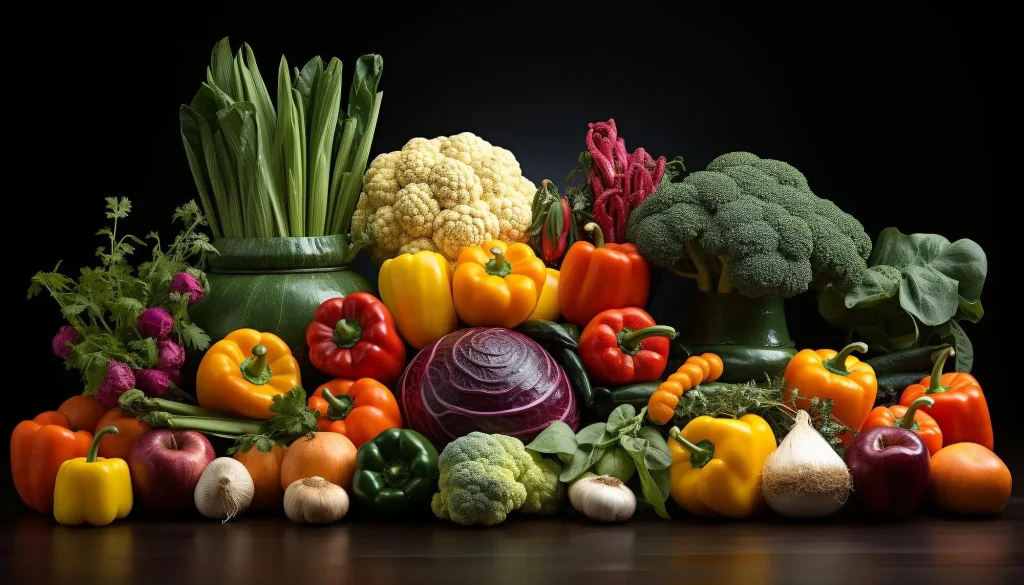Summer is a time of abundance, with gardens and markets brimming with fresh, vibrant vegetables. Consuming seasonal produce not only ensures peak flavor and nutrition but also supports local farming. Here’s a look at some vegetables that thrive in the summer heat and the health benefits they offer.

Tomatoes
Tomatoes are the quintessential summer vegetable, celebrated for their juicy, sweet flavor. They are rich in lycopene, an antioxidant linked to reduced risk of heart disease and cancer. Tomatoes also provide vitamins C and K, potassium, and folate. Their high water content helps keep you hydrated, making them perfect for hot days.
Zucchini
Zucchini, a type of summer squash, is incredibly versatile and low in calories. It’s an excellent source of vitamin C, potassium, and magnesium. Zucchini also contains antioxidants like lutein and zeaxanthin, which support eye health. Its high fiber content aids digestion and helps maintain a healthy weight.
Bell Peppers
Bell peppers come in various colors—green, red, yellow, and orange—each with unique health benefits. They are packed with vitamins A and C, both of which boost the immune system and promote healthy skin. Bell peppers also contain capsaicin, which has anti-inflammatory properties and may aid in pain relief.
Cucumbers
Cucumbers are another hydrating vegetable, consisting of about 95% water. They are a good source of vitamins K and C, potassium, and magnesium. Cucumbers are known for their anti-inflammatory properties and are beneficial for skin health, often used in beauty treatments for their cooling and soothing effects.
Eggplant
Eggplants, with their deep purple hue, are rich in anthocyanins, a type of antioxidant that protects cells from damage. They are also high in fiber and low in calories, promoting digestive health and weight management. Additionally, eggplants contain nasunin, which is believed to protect brain cells from oxidative stress.
Corn
Sweet corn is a summer staple that’s enjoyed grilled, boiled, or in salads. It is a good source of fiber, which aids in digestion and helps regulate blood sugar levels. Corn also provides essential nutrients like vitamin B6, folate, and thiamin, which are vital for energy production and brain health.
Green Beans
Green beans are nutritious and low in calories, making them a healthy addition to any summer meal. They are high in vitamins A, C, and K, as well as folic acid and fiber. The antioxidants in green beans help combat free radicals, reducing the risk of chronic diseases.
Okra
Okra, often used in Southern cooking, is rich in vitamins C and K, folate, and magnesium. It contains mucilage, a type of soluble fiber that helps lower cholesterol levels and regulates blood sugar. Okra is also known for its anti-inflammatory and antimicrobial properties.
Spinach
While spinach is available year-round, it thrives in the cooler summer months. It is loaded with iron, calcium, magnesium, and vitamins A, C, and K. Spinach is also high in antioxidants like beta-carotene and lutein, which promote eye health and reduce inflammation.
Carrots
Carrots, though available throughout the year, are particularly sweet in the summer. They are rich in beta-carotene, which the body converts into vitamin A, essential for vision, immune function, and skin health. Carrots also provide fiber, vitamin K, potassium, and antioxidants.
Conclusion:
Incorporating these summer vegetables into your diet can enhance your health by providing essential nutrients and antioxidants. Whether you’re enjoying a fresh salad, a grilled vegetable medley, or a hearty stew, these seasonal vegetables offer a delicious way to stay nourished and healthy throughout the summer months. By eating what’s in season, you’ll also be supporting local agriculture and enjoying produce at its peak flavor and nutritional value.


